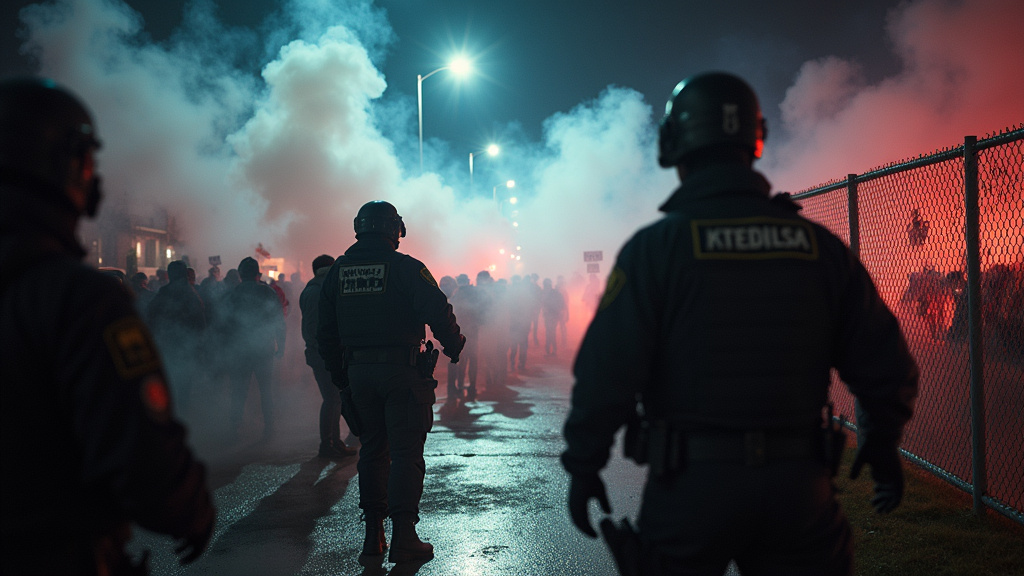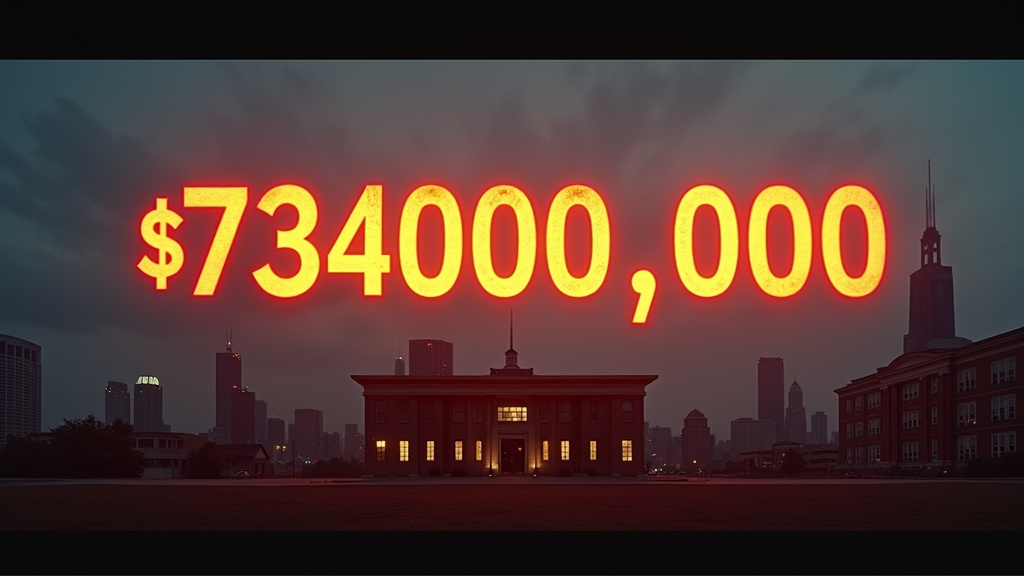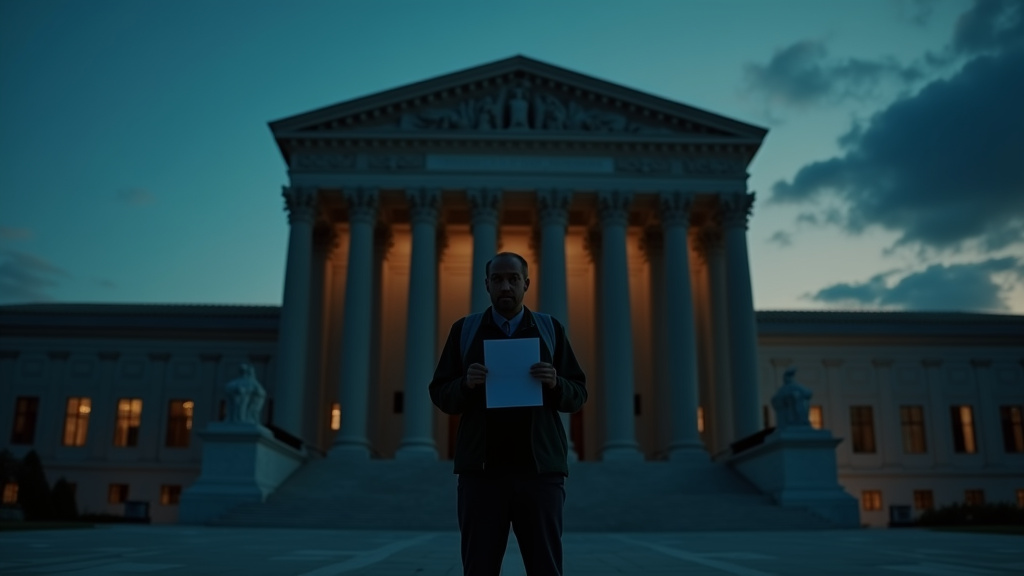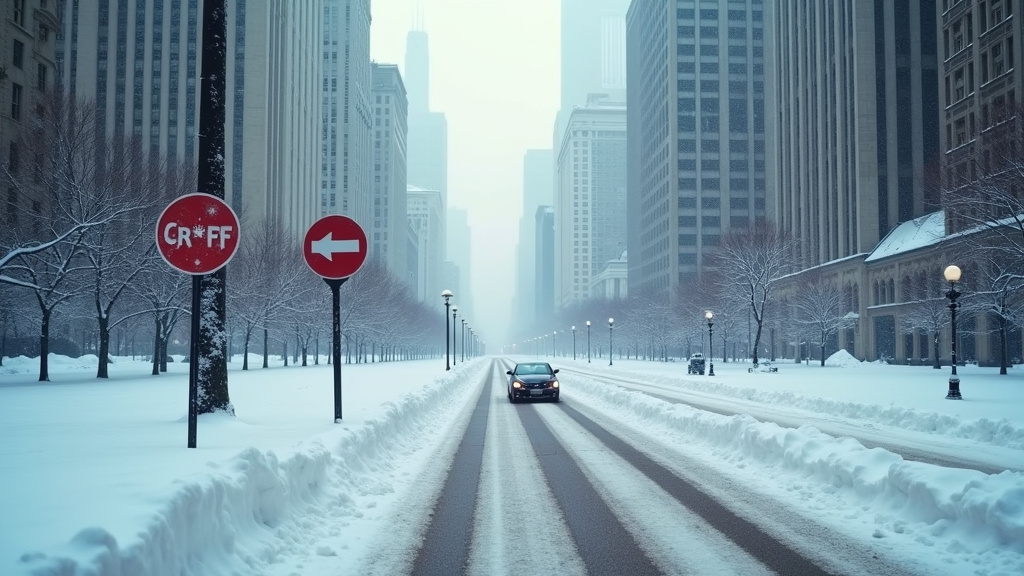CHICAGO – A wave of immigration enforcement operations across Chicago is casting a long shadow of fear over the city’s vibrant immigrant communities, disrupting lives, shuttering businesses, and fraying the social fabric. Recent federal raids, targeting various locations from O’Hare International Airport to local neighborhoods, have led to multiple arrests and ignited protests, leaving residents anxious about their safety and uncertain about their future.
Raids Unfold Across the City and at Key Transit Hubs
Federal agents have been conducting significant immigration enforcement actions throughout the Chicago area, with several high-profile incidents drawing widespread attention. On a recent Friday, twelve individuals were arrested during an immigration raid at a parking lot near Chicago O’Hare International Airport, a common waiting area for rideshare drivers. Witnesses described the scene as chaotic, with agents interrogating and detaining drivers. The Illinois Drivers Alliance expressed deep concern that the drivers’ due process rights may have been violated, stating this is part of a pattern of “attacks on immigrant families”.
Adding to the unease, a U.S. citizen and WGN television producer was arrested by masked federal agents on Chicago’s North Side during a raid. While she was later released without charges, the incident, captured on video, drew outrage and accusations of excessive force. Eyewitnesses reported that agents allegedly threw objects at a Border Patrol vehicle, leading to the producer’s arrest on suspicion of assaulting a federal officer, a claim disputed by some.
Meanwhile, protests have continued outside the U.S. Immigration and Customs Enforcement (ICE) facility in Broadview, a suburb of Chicago. These demonstrations have sometimes led to arrests, with recent clashes resulting in multiple detentions. Broadview officials have also moved to restrict protest zones around the facility, citing safety concerns and disruptions for residents.
Reports indicate that migrants have been detained at a variety of locations across the city and its suburbs, including construction sites, near university buildings, strip malls, and schools. These operations, part of a broader federal crackdown, have sparked alerts circulating online, warning residents about sweeps in neighborhoods with significant Latino populations, such as Cicero, Little Village, and Pilsen.
A Chilling Effect on Immigrant Life and Economy
The cumulative effect of these raids has been described as “chilling” by community members and advocates. Fear is pervasive, leading many to alter their daily routines and avoid public spaces. Businesses in immigrant-heavy neighborhoods, once bustling hubs, are now facing significant downturns. In Little Village, a popular neighborhood known for its vibrant Mexican culture, businesses like quinceañera dress shops and restaurants are reporting substantial losses, with some forced to close. One business owner likened the current decline to the devastating impact of the COVID-19 pandemic, citing a “40 percent loss” in business.
Families are living in a state of constant anxiety, worried about loved ones being detained. The arrest of Maria, a tamale vendor on Chicago’s West Side, exemplifies the abruptness with which families can be separated. Her son expressed fear that his mother could be gone for months or years, leaving his younger siblings to cope with her absence. Despite her U.S. citizenship, his sister, he worried, could also be targeted based on appearance. Such incidents fuel accusations of racial profiling and discrimination, as community members question the basis of these enforcement actions.
Community Resistance and Official Responses
In response to the intensified enforcement, immigrant rights groups and community organizations are working to support those affected and to raise awareness. Groups like the Illinois Coalition for Immigrant and Refugee Rights (ICIRR) and Organized Communities Against Deportation (OCAD) have established rapid response networks to verify and report ICE activity, and provide legal and social services.
Chicago Mayor Brandon Johnson has taken a stance against the federal operations, signing an “ICE Free Zone” executive order aimed at preventing the use of city-owned property for federal immigration operations. This move underscores the tension between local governance and federal immigration policy. The Department of Homeland Security, however, maintains that its operations are “targeted” and focus on individuals in violation of immigration laws, often highlighting arrests of those with criminal records. Despite these assurances, concerns persist among advocates that the “Midway Blitz” operation, which has led to over 1,000 arrests, has been indiscriminate and overly aggressive.
The ongoing news of these raids and their impact continues to trend in local discourse, highlighting the deep societal divisions and the profound human cost of intensified immigration enforcement in Chicago. The fear is palpable, and the shattered immigrant world is struggling to find stability amidst the ongoing uncertainty.















